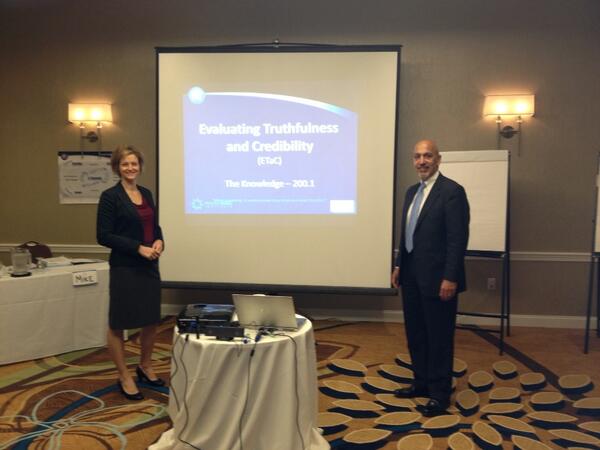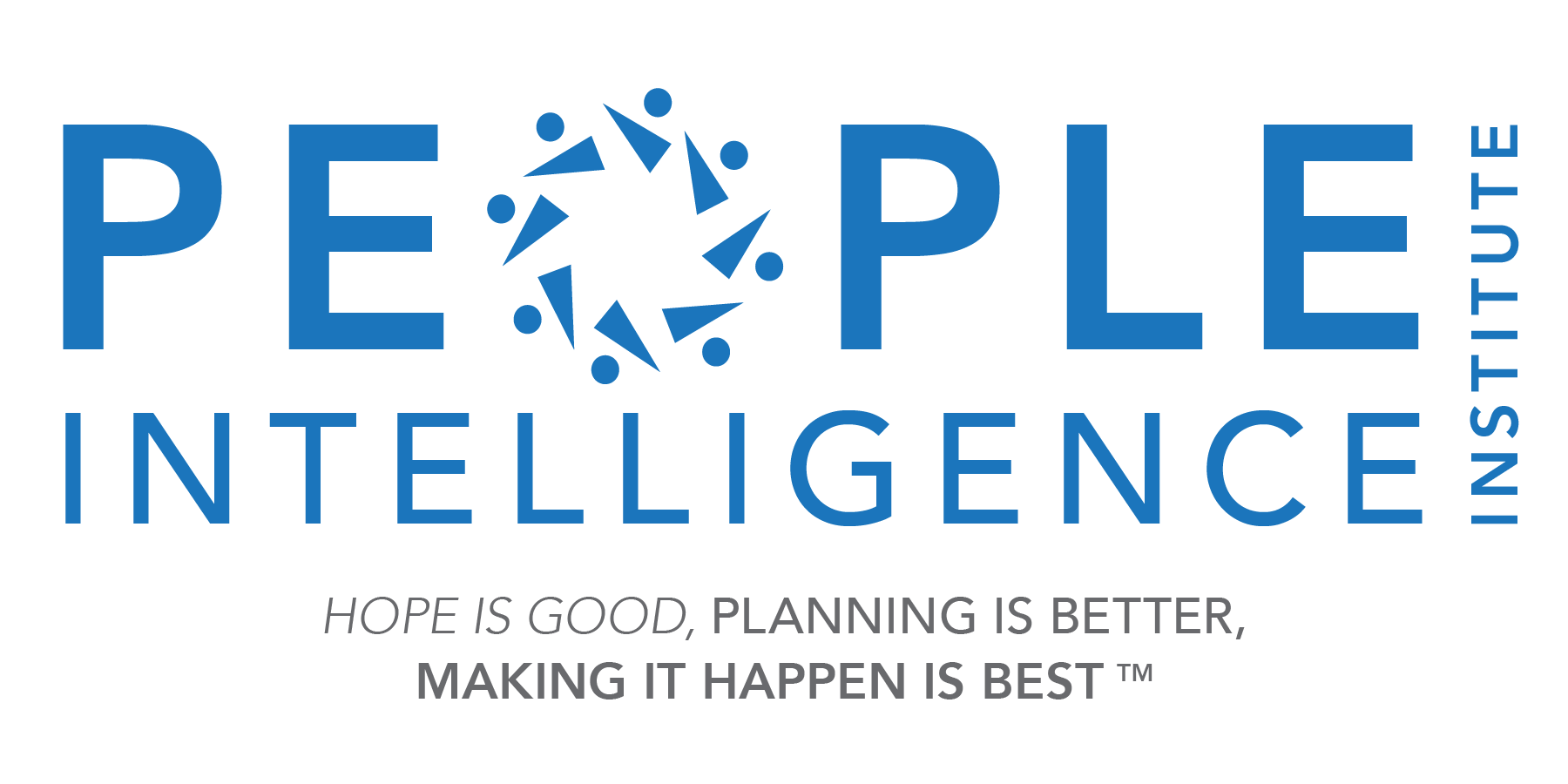"This course has helped train my eye and my mind to see more emotions in others, and as a result, have more successful interactions with others when they are emotional. I am more likely to notice things earlier, before escalation, when the potential to make better choices is stronger."
Read More
News (3)
Universality Challenged: Facial Expressions of Emotions not Culturally Universal?
A recent study has been carried out by Lisa Feldman Barrett that is attempting to gain attention to her work in the field of universality of emotion. Unfortunately the research efforts were misdirected as they only looked at one aspect of the ability of an isolated Himba tribe in Namibia, South Africa; the ability to recognize emotional expressions. The outcomes of that study were then used to challenge Paul Ekman's findings that emotions are universally expressed. There have been over 75 studies that have demonstrated that these very same facial expressions are produced when emotions are elicited spontaneously (Matsumoto, Keltner, Shiota, Frank, & O'Sullivan, 2008). Ironically this was published in the Handbook of Emotions in p215 (2008) – edited by Lisa Feldman Barrett et al. This is a serious disconnect that good research should have addressed. This seems to have been supported by the rejection of the Namibia study by the respected journal, Science.
Barrett reported in July 2013 to Shannon Fischer, in a Boston Magazine interview that "Clearly people don't give a shit about data, because if they did, I wouldn't have this battle on my hands." Maybe the data needs to connect with more relevance to the claims made.
Extract from the Barrett article: "Barrett recently decided to take on Ekman's ideas directly, by sending a small research team to visit the isolated Himba tribe in Namibia, in southern Africa. The plan was this: The team, led by Maria Gendron, would do a study similar to Ekman's original cross-cultural one, but without providing any of the special words or context-heavy stories that Ekman had used to guide his subjects' answers. Barrett's researchers would simply hand a jumbled pile of different expressions (happy, sad, fearful, angry, disgusted, and neutral) to their subjects, and would ask them to sort them into six piles. If emotional expressions are indeed universal, they reasoned, then the Himba would put all low-browed, tight-lipped expressions into an anger pile, all wrinkled-nose faces into a disgust pile, and so on. It didn't happen that way. The Himba sorted some of the faces in ways that aligned with Ekman's theory: smiling faces went into one pile, wide-eyed fearful faces went into another, and affectless faces went mostly into a third. But in the other three piles, the Himba mixed up angry scowls, disgusted grimaces, and sad frowns. Without any suggestive context, of the kind that Ekman had originally provided (see Emotions Revealed), they simply didn't recognize the differences that leap out so naturally to Westerners." http://www.bostonmagazine.com/news/article/2013/06/25/emotions-facial-expressions-not-related/4/
The Ekman hypothesis that 'facial expressions of emotion are not culturally universal' is about the display of the emotion. The universality hypothesis does not claim that all humans perceive, describe or represent emotions universally – the universality hypothesis is to do with the argument that the basic internal human emotions (i.e., happy, surprise, fear, disgust, anger, sad – and latterly contempt) are expressed using the same facial movements across all cultures. The Barrett study seeks to evaluate subjective judgements of facial expressions of emotions and this injects a major contaminant. This alone is reason enough to reject the claim of the Barrett research.
Paul Ekman's research focuses on those displays which happen, unbidden, as a result of experiencing an emotional episode. We know from the extensive research over the last 40 years that facial expressions of some (7) emotions are displayed universally across cultures, sometimes without consciousness, though they are not always judged accurately. Nor can they be always reconstructed consistently. For example, when some people are asked to draw or imitate a sad face, a common expression we see in the Emotional Intelligence Academy consists of pursed lips, tight eyelids and brows down – similar to when a child sulks. Yet genuine felt sadness is universally displayed with inner brows up, relaxed eyelids and mouth corners down – the first and the third components here being very hard to manipulate at will by most people who are not experiencing sadness. This helps to explain why the Himba tribe members 'mixed up the angry scowls, disgusted grimaces, and sad frowns' when asked to group photographs into piles. Maybe if the researchers had used emotion-based, 'context heavy stories' (e.g. 'a child has died'; 'friends have come') and then photographed the expressions on the faces of the tribe members then this research may have contributed more directly towards the universal display argument.
So has this study helped to stimulate debate? – Yes. Does it successfully argue that 'facial expressions of emotion are not culturally universal' – No. What it might do is help to describe the differences in ability to perceive displays of emotion in certain cultures – though these are not necessarily connected with the evolved, unbidden, facial expressions of emotion that good research has shown to be universal.
Cliff Lansley (March 2014)
Posted from: http://www.emotionintell.co.uk/facial-expressions-of-emotions-are-not-culturally-universal/#sthash.tVZiTa7N.dpuf
People Intell Institute successfully launches the very first US based Paul Ekman International courses!
June 12, 2013 marked an exciting day for Maggie Pazian and Michael Palestina, managing partners of People Intell who set up the organization to bring the new Paul Ekman International courses to the US. In partnership with Paul Ekman International and Emotional Intelligence Academy we sell and deliver core training modules in the Northeast United States.

We aim to help others to develop their capabilities to make finer distinctions between emotions to support better decisions about actions and behavior that lead to emotional well-being and constructive cooperation with others.
Here is what delegates from the June courses have shared about their experience:
"I would like to write this testimony to extend my gratitude and support to Maggie, Mike, Cliff and Paul Kelly thanking you for the training I received at the ETaC training. As a Clinical and Forensic Psychologist, I face many challenges in my work. While I and am generally open to any avenues that can complement my work, I am inherently a skeptic who has high standards. Needless to say, I did not come into the ETaC course with blinders on but kept an open mind. Interestingly, I left the 4 day training rather enlightened, most likely due to the way that your group did not rush to arriving at decisions, as well as your adherence to research. I found this to be ethical, responsible, and honorable behavior. Since completing ETaC, I have planned on continuing my education with the organization, as I have found it to be useful in my work. I was able to use it immediately in my work with couples, individuals, consulting, as well as enhancing my interviewing techniques. Thanks for staying in touch and providing additional resources even after the course was completed!" - Joseph Grillo, Psy.D. (Licensed Clinical Psychologist)
"As a sport's coach, I am really grateful to all the trainers for providing me knowledge and competencies for my work. As a person it was not just a pleasure, but a rich experience that helped me to know more about how human emotions work and also about mine. With this course I have been able to create tools that can help my players in a sportive and a personal way." - Nicolas Gagnon, IMPACT DE MONTREAL
"This course has helped train my eye and my mind to see more emotions in others, and as a result, have more successful interactions with others when they are emotional. I am more likely to notice things earlier, before escalation, when the potential to make better choices is stronger. Also, although I may not follow up on everything I see on my friends' and family's faces, I might be able to offer help or support when before I wouldn't have seen subtle signals that such were needed." - Lynn Dolan
People Intell Institute is excited to be part of this worldwide network that is growing each day by adding new Licensed Delivery Centers as well as supporting conitnuing research and education in the areas of emotional awareness, deception and credibility.

